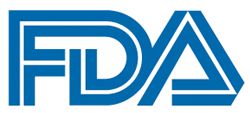FDA Approves Pembrolizumab for PD-L1+ Esophageal Squamous Cell Carcinoma
The FDA has approved pembrolizumab monotherapy as a treatment for patients with recurrent, locally advanced, or metastatic esophageal squamous cell carcinoma whose tumors express PD-L1, as determined by an FDA-approved test, and who have disease progression after ≥1 prior systemic regimen.

The FDA has approved pembrolizumab (Keytruda) monotherapy as a treatment for patients with recurrent, locally advanced, or metastatic esophageal squamous cell carcinoma (ESCC) whose tumors express PD-L1 (combined positive score [CPS] ≥10), as determined by an FDA-approved test, and who have disease progression after ≥1 prior systemic regimen.
“Historically, patients with advanced esophageal cancer have had limited treatment options, particularly after their disease has progressed,” said Jonathan Cheng, MD, vice president, oncology clinical research, Merck Research Laboratories, in a press release. “With this approval, Keytruda is now the first antiPD-1 therapy approved for the treatment of previously-treated patients with recurrent locally advanced or metastatic squamous cell carcinoma of the esophagus whose tumors express PD-L1 (CPS ≥10), providing an important new monotherapy option for physicians and patients in the United States.”
The approval was based on findings from the phase III KEYNOTE-181 and the phase II KEYNOTE-180 trials.
The multicenter, randomized, open-label, active-controlled KEYNOTE-181 trial investigated the use of pembrolizumab in comparison with investigator’s choice of chemotherapy in previously treated patients with recurrent, locally advanced, or metastatic esophageal cancer, either adenocarcinoma or squamous cell carcinoma histologies, or Siewert type I adenocarcinoma of the esophagogastric junction.
A total of 628 patients were enrolled who had progressed on or after 1 prior line of systemic therapy for advanced disease. All patients with HER2-positive esophageal cancer were required to have received a prior HER2-targeted therapy. Tumor specimens were required for PD-L1 testing using the PD-L1 IHC 22C3 pharmDx kit.
Those with a history of noninfectious pneumonitis requiring steroids, current pneumonitis, active autoimmune disease, or a medical condition requiring immunosuppression were excluded from the trial.
Patients were randomized 1:1 to receive either 200 mg every 3 weeks of pembrolizumab or investigator’s choice between paclitaxel (given 80-100 mg/m2on days 1, 8, and 15 of every 4-week cycle), docetaxel (given 75 mg/m2every 3 weeks), or irinotecan (180 mg/m2every 2 weeks). Treatment was continued in both arms until disease progression or unacceptable toxicity. Patients in the pembrolizumab arm were allowed to continue treatment beyond disease progression, defined as the first RECIST v1.1 progression, if the patient was clinically stable until the first radiographic evidence of progression was confirmed with repeat imaging at least 4 weeks later.
The primary endpoint of the trial was overall survival (OS) and the secondary endpoints were objective response rate (ORR) and progression-free survival (PFS).
Among patients with ESCC and CPS ≥10, the median OS was 10.3 months (95% CI, 7.0-13.5) with pembrolizumab treatment compared with 6.7 months (95% CI, 4.8-8.6) in the chemotherapy arm. The hazard ratios for OS were improved in patients with CPS ≥10 compared with the overall population (0.70 vs 0.89) and in patients with ESCC (0.77 vs 0.89).
The median PFS was 3.2 months (range, 2.1-4.4) among patients receiving pembrolizumab compared with 2.3 months (range, 2.1-3.4) for those who received chemotherapy (HR, 0.66; 95% CI, 0.48-0.92).
In the pembrolizumab arm, the ORR was 22% (95% CI, 14.0%-33.0%), consisting of a complete response (CR) rate of 5% and a partial response (PR) rate of 18%). In the chemotherapy arm, the ORR was 7% (95% CI, 3.0%-15.0%) with a CR rate of 1% and a PR rate of 6%. The median durations of response in the pembrolizumab and chemotherapy arms were 9.3 and 7.7 months, respectively.
The multicenter, nonrandomized, open-label KEYNOTE-180 trial enrolled 121 patients with locally advanced or metastatic esophageal cancer who had progressed on or after ≥2 prior systemic treatment regimens for advanced disease. The eligibility criteria and treatment regimens were otherwise identical to that of the KEYNOTE-181 trial.
Among patients with ESCC whose tumors had CPS ≥10 (n = 35), the ORR was 20% (95% CI, 8.0%-37.0%). The duration of response in the 7 responding patients ranged from 4.2 to 25.1+ months; 3 of these patients had responses lasting ≥12 months.
The press release announcing the approval warned of immune-mediated adverse reactions from treatment with pembrolizumab, including pneumonitis, colitis, hepatitis, endocrinopathies, nephritis and renal dysfunction, severe skin reactions, solid organ transplant rejection, and complications of allogeneic hematopoietic stem cell transplantation. Treatment should be withheld or discontinued depending on the severity of the adverse event and corticosteroids can be given if appropriate.
Reference:
FDA Approves New Monotherapy Indication for Merck’s KEYTRUDA® (pembrolizumab) [news release]. Kenilworth, NJ: Merck; July 31, 2019. https://bit.ly/2YzDArN. Accessed July 31, 2019.